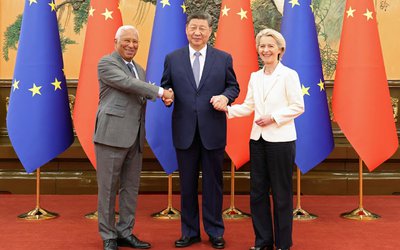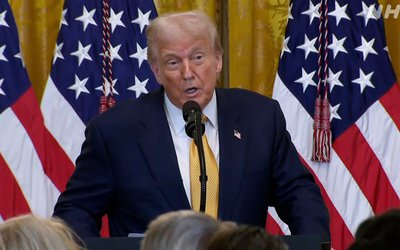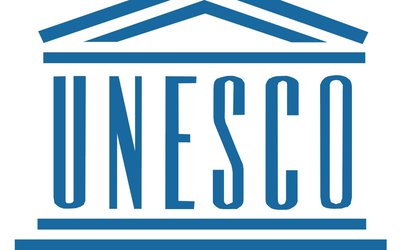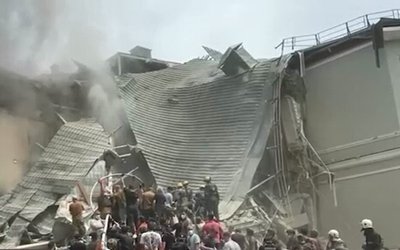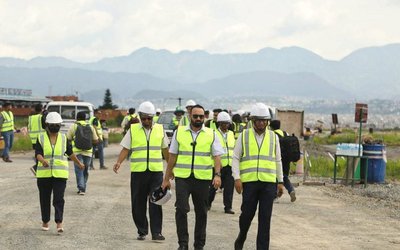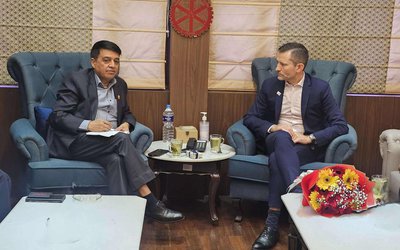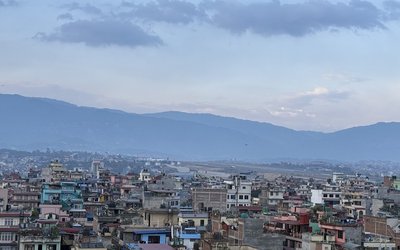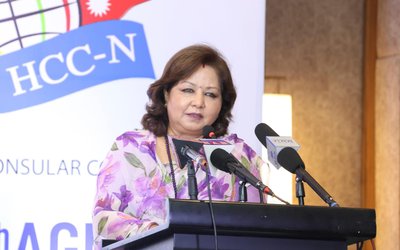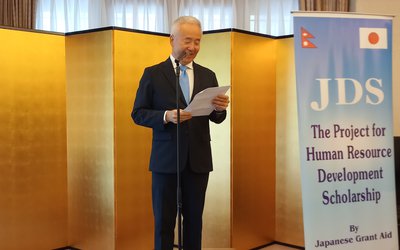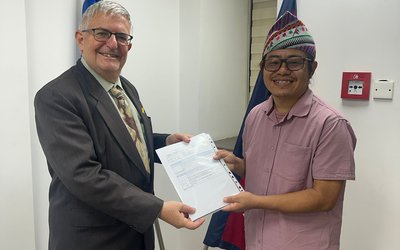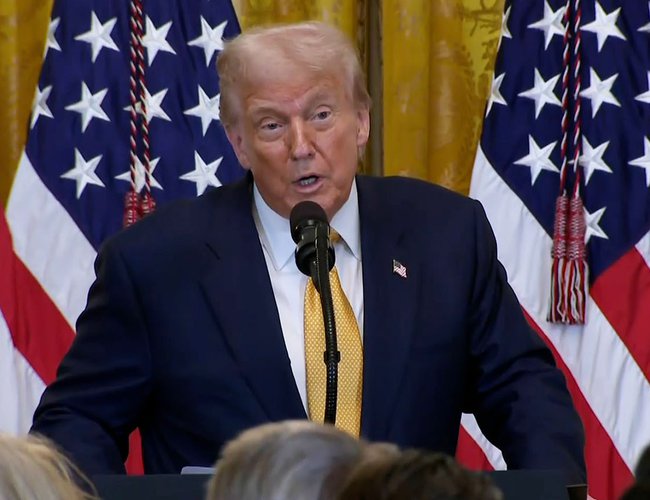
Japan and the United States say they have reached an agreement on trade and tariffs after months of negotiations. US President Donald Trump announced the deal on social media, calling it "massive" for both countries.
Trump said the deal involves what he calls "reciprocal tariffs" on Japanese imports set at 15 percent. That is down from the 25 percent he had threatened would take effect from August 1.
Trump says Tokyo agreed to trade goods such as automobiles, rice and other agricultural products, and invest 550 billion dollars into the US.
He claimed the deal will create hundreds of thousands of jobs.
Trump spoke about the agreement at an event shortly after posting the announcement. "It's a great deal for everybody," he said. "I always say it has to be a great deal for everybody."
Trump described the agreement as "a lot different from the deals in the past," and stressed this country was "doing really well" and that "we have a lot of money flowing in."
Ishiba: US tariff on auto industry is 15 percent
Prime Minister Ishiba Shigeru gives more detail about the agreement on Wednesday morning.
Japanese Prime Minister Ishiba Shigeru also confirmed the agreement. He said that the two countries agreed to halve the 25 percent additional tariffs imposed on cars and their parts from April this year. He explained the levies will be set at 15 percent, which includes the existing 2.5 percent base duty the US had set for automobiles.
Ishiba added that Japan was the first country to be able to negotiate with the Trump administration a reduction in tariffs on automobiles and auto parts with no set quota. In May, the US and the UK struck a deal reducing tariffs to 10 percent for up to 100,000 UK-made vehicles.
He also said that Japan won't be treated less favorably than other countries if tariffs are imposed in the future on goods deemed important for economic security, such as semiconductors and medicines.
Ishiba added that Japanese companies will invest in the United States across key sectors, such as semiconductors, medicine, steel, shipbuilding, critical minerals, aviation, energy, cars, as well as AI and quantum technology. He stressed that he believes the agreement is critical in terms of Japan's economic security.
Ishiba expressed confidence that the deal will help protect Japan's national interests, foster job creation alongside the United States and help both countries play key roles on the world stage.
Agreement on rice imports
Californian rice stored in a barn in Sacramento
Sources close to the Japanese government say that the two countries agreed to expand the ratio of rice imports from the US.
Japan imports about 770,000 tons of tariff-free rice every year on a mandatory basis under its "minimum access" system.
Sources say that Japan will increase the percentage of US rice it imports within that framework.
Steel and aluminum were left out of the trade deal. Government sources say an existing 50-percent tariff on those will stay in place.
Mission accomplished
Japan's Economic Revitalization Minister and the country's chief tariff negotiator, Akazawa Ryosei, posted on social media after meeting with Trump, "I went to the White House, and have completed my mission." Akazawa added that he is sincerely grateful to all those involved.
Japan's chief tariff negotiator, Akazawa Ryosei, enters the US Department of the Treasury.
The agreement comes after Akazawa arrived in Washington for an eighth round of talks this week. His team had been racing to strike a deal before the August 1 deadline.
Akazawa held a two-hour meeting with US Commerce Secretary Howard Lutnick and later met with Treasury Secretary Scott Bessent earlier on Tuesday.
- China seeks to maintain ties with EU amid rising US trade pressure
- Jul 25, 2025
- Trump announces Japan deal
- Jul 23, 2025
- US to pull out of UNESCO
- Jul 23, 2025
- Russia launches heavy strikes on Ukraine
- Jul 22, 2025
- Russia gives positive response to Ukrainian proposal for new round of talks
- Jul 21, 2025
